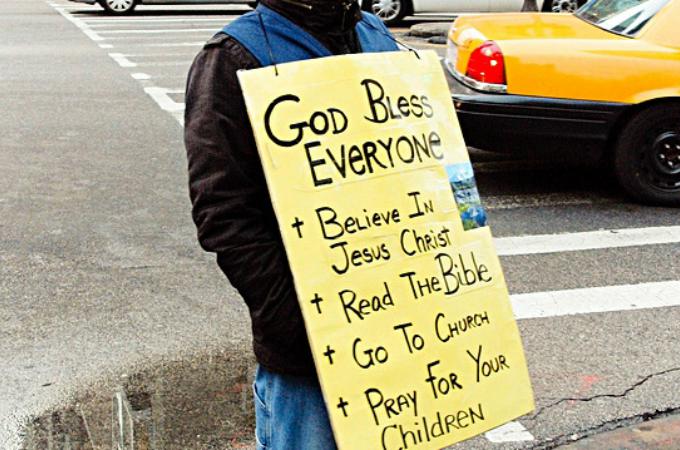Prayer precedes activism
The Wednesday after the presidential election was a very emotional day in America.
Like millions of others, I was up way too late on election night, waiting for results to be clear before heading to a sleepless bed.
In the morning, social media exploded. No matter how one voted, passions prevailed. People exulted or were despondent; people were euphoric, depressed, angry, at times, simultaneously.
There was no in-between. Clearly my little Facebook page was a metaphor for a divided country.
Folks who had been all too happy to post partisan political rhetoric on their pages for over a year were suddenly whining that people were not being nice to them now.
Friends who normally posted kids' pictures of sewing accomplishments suddenly laced remarks with profanity. People suspected others' motivations. Folks took turns accusing or denying that a vote stemmed from racism, xenophobia or misogyny.
It was brutal, and that was on my Facebook page, a small group of "friends" comprised of actual friends and relatives, normally nice people.
Contributing to my Wednesday mood was the fact that Nebraska had voted to reinstate the death penalty. For three years, I worked as an organizer with an anti-death penalty group in our state. A legislative coalition, the majority Republican, strongly supported by Nebraska's three Catholic bishops, abolished the death penalty in our state legislature.
Not only did our legislators have the courage to abolish, they summoned the votes to override our governor's veto. But success was short-lived. A petition drive resulted in the issue being on the ballot, and now, about 60 percent of the electorate had voted to reinstate execution.
So, Wednesday passed in fatigue and weariness. Then, I noticed an email invitation. I am on the mailing list for a local Methodist church, which I had worked with during my organizing days.
Their church was open Wednesday night for "Prayers for Peace." They were offering a time "to process, reflect, and come together in the wake of the election."
The thought of praying in community in a quiet, nonpartisan place was deeply appealing. Perhaps a Catholic Church in town was offering the same -- one had opened their doors on Election Day for prayer -- but I didn't know of any.
So, I headed to the Methodist church. Small groups were chatting softly and solitary folks were praying silently in pews. The three-hour open house had included a communion service, but I had purposely arrived after that concluded.
Nevertheless, the pastor came to me and indicated the bread and chalice that remained on the altar.
"You're welcome to receive communion," she said.
"I'm not a Methodist," I explained politely.
"Neither is God," she smiled.
Ah, yes, I thought. And neither is God a Democrat or a Republican, a liberal or a conservative. No political labels for God, just compassionate, merciful, inclusive.
After victory or defeat, the first inclination is to recommit to your own partisan efforts. This isn't a bad inclination -- citizens should work for causes, charities and justice issues that call to them. Passion is good.
But prayer comes first.
By Thursday, Facebook was growing reflective. People were apologizing for outbursts and offering support to anyone in a group who might be harassed, terrorized or intimidated by a small but dangerous minority.
A friend posted a picture of Martin Luther King Jr. with his words: "I have decided to stick with love. Hate is too great a burden to bear."
That hangs in my office now, a reminder from a martyred hero that courageous political activism begins, ends and has its roots in love, faith and God.
- Effie Caldarola is a columnist with the Catholic News Service.



















